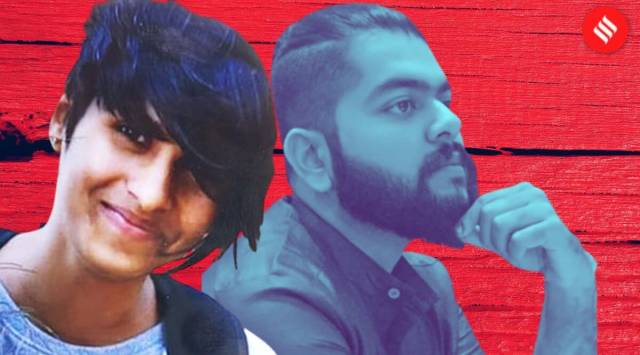
The gruesome murder of Shraddha Walkar by her live-in partner has shocked the nation. It has sparked discussions on the nature of intimate partner violence and how they can be avoided. Most of these conversations revolve around one piece of advice to the victims — “Walk out”. But is it really that easy to walk out from an abusive relationship? This question takes me back to my childhood.
I remember the first time I stood up against the violence. I was seven years old. The cries of my mother stirred courage within me that evening. I was wearing an orange dress, and had a notebook and pencil in my hand when I walked up to the fight. I screamed, “I have a test tomorrow and can’t study. Will you please stop?” Surprised, my father looked at me and walked away. It was also the first time I asked my mother why she didn’t leave him.
Reports suggest that one in three women faces intimate partner violence (IPV) in India. The actual number could be much higher than this. Most women hesitate to report cases of domestic violence, especially in the initial incidents. Even when the situation becomes repetitive, most don’t leave their partners due to reasons similar to the ones my mother gave me that day. In a patriarchal society like ours, women have been conditioned to endure whatever their husbands inflict on them, taught to believe that violence is an expression of love, and that it is their responsibility to save the marriage. When they ultimately leave, their parents often force them to return to the marital home because it was now their “real” home and urge them to “adjust” and “compromise”. The situation becomes more dire if there are children in the picture. My mother couldn’t leave her abusive husband because she had three children and no financial security in case she needed to raise us on her own. She also couldn’t bear to leave us behind with my father. When I asked her that question that evening, they had already been married for 18 years and she tolerated whatever had come her way. In her opinion, it was too late for a woman in her late 40s to walk out and start over.
Today, with increasing financial independence and education of women, one would assume that survivors would find it easier to walk out of violent relationships or marriages. Unfortunately, this is not always the case. Even amongst the urban population, various circumstances hold women back from either reporting or walking away. I have women friends who are well educated and financially sound, but who choose to stay in such relationships in the name of love, and in the hope that things will change. Perpetrators also follow a cycle of grovelling for forgiveness and creating a period of calm before the next incident strikes. The time lag mellows the survivors down, building faith that it was a one-off incident. We can’t also ignore the intersectionality of the identities of these survivors which create an additional burden. In some cases, the partnerships are inter-caste or inter-faith, or they have differences in class or involve elopement — leading to the partners being ostracised by their own families. This leaves the survivors in a vulnerable state wherein they have no support system or community to fall back on. Therefore, they decide to tough it out and bear whatever comes their way.
We put immense pressure on the survivor when we tell them that leaving is the only right thing to do. For the survivor, this inadvertently comes with the baggage of being “judged” if she doesn’t take the advice. She fears being seen as “weak” or “spineless”. If she remains in the relationship and faces further violence, she would hesitate to speak up about it. Such seclusion creates dangerous grounds for the perpetrator to commit more heinous crimes.
We need to be sensitive in our conversations about IPV. We shouldn’t burden survivors to live up to our expectations of what they should be doing. We should look for tangible ways in which we can help them overcome the challenges they are facing — to make them aware of their options, equip them financially, connect them to counsellors and lawyers in case they want to go down that route, to upskill them so as they can be financially independent in the future, etc. Most importantly, to listen to them instead of trying to impose our decisions on them.
Crimes happen not because of the survivor but because of the perpetrator. The only way real change can happen in society is by looking for ways to reach the perpetrator without causing any foreseeable harm to the survivor. In my household, the cycle of abuse broke only after my father listened to our pleas, quit alcohol, and underwent counselling sessions. He became a totally changed person. The success of such interventions have been noted by various studies. Many countries across the world run government programmes for IPV perpetrators who demonstrate the desire to change their behaviours. This is the right approach to bring about systemic change. While we don’t have any such governmental intervention, it is crucial for family members or close friends of perpetrators to speak to them and gradually get a counsellor involved. Only then can one ensure that the pattern of violence isn’t repeated. Otherwise, one survivor may “leave”, but the danger remains for the next person who comes along.
The writer is the founder, Femme First Foundation